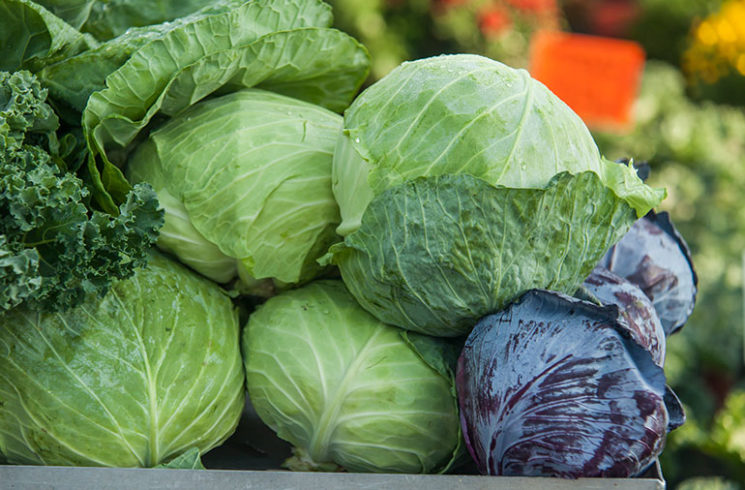8 Health Benefits of Cabbage
8 ways cabbage is good for you
Many people recognize cabbage for its bounty of fiber, vitamins and minerals.
One cup of chopped, raw green cabbage is only 22 calories and delivers:
.54% of the recommended daily value for vitamin C.
.85% of the recommended daily value for vitamin K.
.More than 2 grams of fiber.
.1 gram of protein.
“Cabbage is also a potassium-rich food, which can help lower high blood pressure,” says Zumpano. “The more we learn about cabbage, the better it promises to be.”
Research shows leafy green vegetables, in general, are good for you, but we need more studies to understand how cabbage specifically affects your body. Zumpano says many people believe the nutritional value of cabbage means it can have any of the following benefits.
1. Fights inflammation
Some of cabbage’s health benefits are due to anthocyanins, which are naturally occurring antioxidants. Anthocyanins not only add color to your fruits (think blueberries) and vegetables, but may also reduce inflammation.
Chronic inflammation (long-term swelling) is associated with heart disease, cancer, rheumatoid arthritis and many other medical conditions. In animal studies, anthocyanins have been shown to help control inflammation.
We need more research, but one small human study showed that those who ate the most cruciferous vegetables had much lower inflammation levels than those who ate the least.
2. Keeps you strong
Vitamin C, also known as ascorbic acid, does a lot of work for your body. It helps make collagen and boosts your immune system. It also helps your body absorb iron from plant-based foods.
3. Improves digestion
Packed with phytosterols (plant sterols) and insoluble fiber, cabbage can help keep your digestive system healthy and bowel movements regular. It fuels the good bacteria in your gut that protects your immune system and produces essential nutrients. That’s especially true when you eat fermented cabbage in kimchi or sauerkraut.
“Cabbage can help you stay regular,” says Zumpano. “It can also help support safe and healthy weight loss.”
Fiber is a nondigestible or absorbed carbohydrate, so it adds bulk to meals and takes space in your belly causing you to fill full faster and longer without ingesting carbs that you’re absorbing.
4. Protects your heart
The anthocyanins found in cabbage help with more than inflammation. Research suggests they add to the health benefits of cabbage by reducing your risk of heart disease. Scientists have found 36 different kinds of anthocyanins in cabbage, which could make it an excellent option for cardiovascular health.
5. Lowers your blood pressure
Potassium is a mineral and electrolyte that helps your body control blood pressure. One cup of red cabbage can deliver a healthy amount of potassium — as much as 6% of your recommended daily value. This could help lower your blood pressure, reducing your risk for heart disease.
6. Lowers cholesterol
Too much “bad” cholesterol, or LDL cholesterol, can cause heart problems if it builds up in your arteries. Cabbage contains two substances — fiber and phytosterols (plant sterols) — that compete with cholesterol to be absorbed by your digestive system. They wind up reducing your bad cholesterol levels and improving your health.
7. Maintains bone health and healthy blood clotting
Vitamin K is essential to your well-being. Without it, you’d be at risk of developing bone conditions like osteoporosis, and your blood wouldn’t be able to clot properly. Enter cabbage, a great source of vitamin K. One cup provides 85% of the recommended daily value.
“Vitamin K helps keep our bones strong and our blood clotting well,” says Zumpano. “Cabbage can give you that boost you need to make sure your levels are adequate, and your body stays protected against illness and disease. And you don’t even need to eat that much cabbage to get great health benefits.”
8. Keeps cancer at bay
Early animal studies suggest that leafy green vegetables like cabbage have phytochemicals that may help protect against cancer. They contain antioxidants and plant compounds like glucosinolates. These sulfur-containing chemicals break down during the digestive process into substances that may help fight cancer cells and clear them from your body.














Post Comment